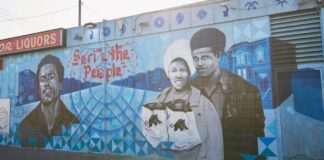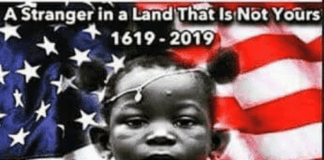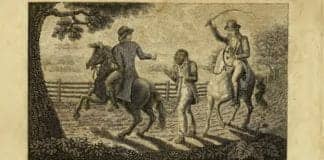Tags Black Panther Party (BPP)
Tag: Black Panther Party (BPP)
Fighting co-optation: Honoring the Black Panther Party on its 55th anniversary
Delency and Abbas Muntaqim deftly lay out the critical importance of history and education in the revolutionary movement.
Pattern of practice – brutality, schemes and crimes against humanity since...
Mutope Duguma defines the path from 1619’s forced exportation of Afrikans through the 400-year evolving in the domestic colonized nation to New Afrikans in the protracted struggle of present day.
Herman Wallace: Friend, artist and member of the Angola 3
What is it like to correspond with an incarcerated person? End Solitary Confinement advocate Willow Katz’s interview with Sharon Willis reveals an unintended, deeply human 26-year relationship created between Sharon and revered ancestor Herman Wallace of the Angola 3.
They came for us in the morning: What prison officials don’t...
Emmett Till, the Scottsboro Boys, the Central Park 5, and the list goes on. The ramifications of being falsely accused of a crime in America can be, and often have been, deadly for Black people.
Mass incarceration for profit: The dual impact of the 13th Amendment...
The 13th Amendment reads in Section One: “Neither slavery nor involuntary servitude, except as a punishment for crime whereof the party shall have been duly convicted, shall exist within the United States, nor any place subject to their jurisdiction.”
Understanding this contradictory character of the 13th Amendment sheds light on the utilization of the criminal justice system in the perpetuation of bondage for the purpose of institutional racism and class exploitation.
‘13th’ and the culture of surplus punishment
Ava DuVernay undertook the documentary “13th” in order to explore and bring attention to the Prison Industrial Complex. The film’s title refers to the 1865 amendment to the U.S. Constitution, in which slavery was abolished “except as a punishment for crime whereof the party shall have been duly convicted.” The story told by “13th” thus goes back to the early chain-gangs of Black prisoners – men arrested for petty offenses under the post-Civil War Black Codes who were then contracted out to perform labor that they had previously performed as privately-owned slaves.
Youth of color: Watched and shot
Trayvon Martin and Mumia Abu-Jamal. One is dead. One languished on death row for 30 years. They are separated in age by a generation, separated by different locations and different life-histories, but their stories of being under surveillance, watched and shot, intersect strikingly with each other and with many other people.










